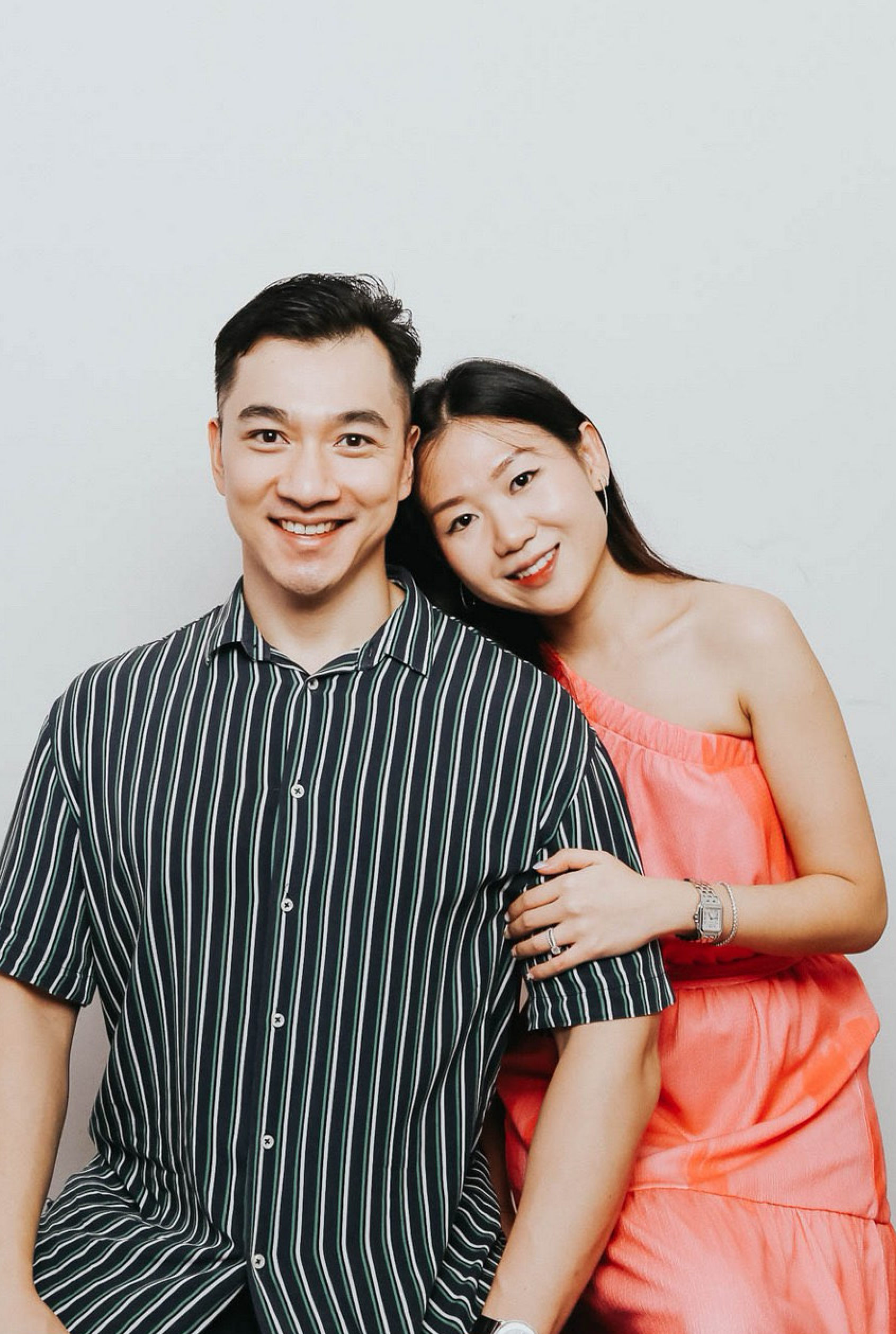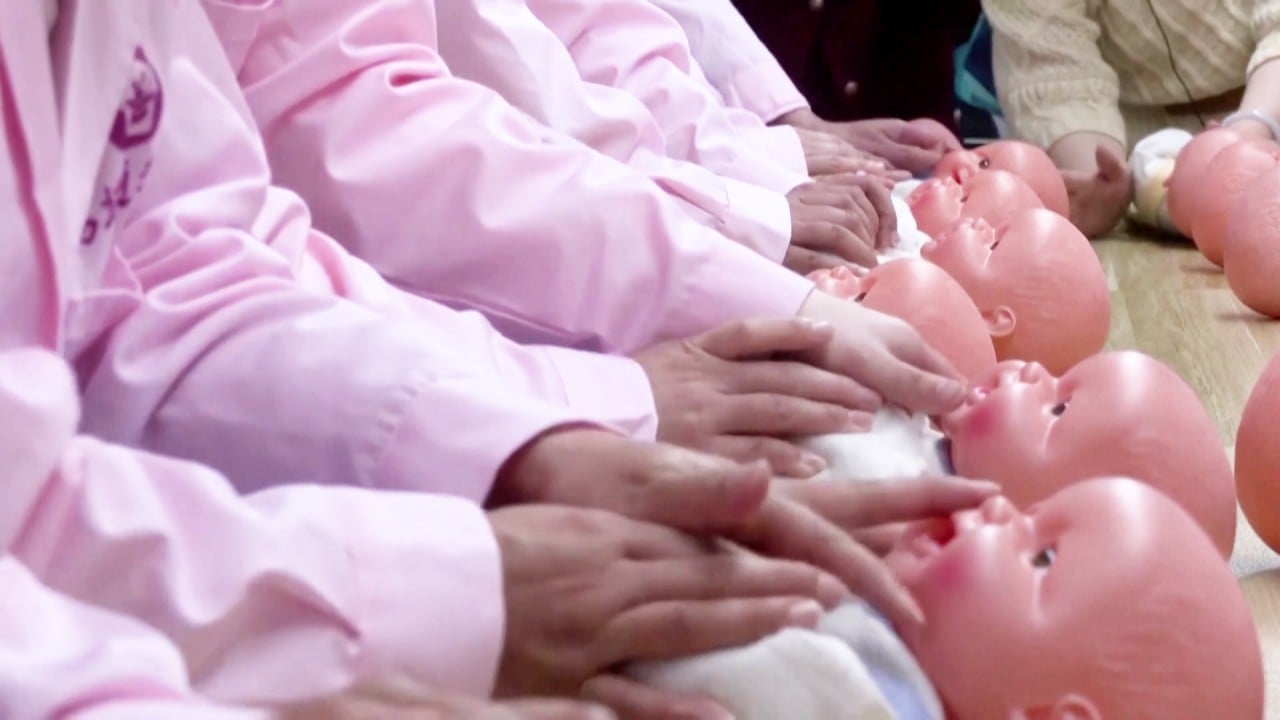Seema met her husband Rajiv while they were both studying at university. The couple were surprised to find that they shared similar views on not wanting to have children. They’ve now been married for six years.
Experts push for urgent action as more Hongkongers say they ‘don’t need a baby’
Experts push for urgent action as more Hongkongers say they ‘don’t need a baby’
“I was shocked to find someone who felt the same way as me about no kids,” Seema said. “Especially because in our culture, the norm is nuclear families – a mother, a father and children … and anything that deviates from that is looked down upon.”
Singapore couple Corinne Chow, a communications professional, and Ryan Tan, who works in commodities, shared one such video on TikTok, in which they walked viewers through what their lives looked like as a 36-year-old DINK couple.
The video sparked some “interesting conversations” in the comments section, Chow said.
“There’s one camp that says this is why you should have kids, and another that says this is why you shouldn’t,” she said. “For us, it is about not getting blindsided by societal constructs. If you want to have kids, that’s great. If you don’t want to have kids, that’s equally wonderful.”
Their decision to remain childless was not made due to financial pressures, Tan explained, but as a DINK couple, they do feel they have more agency over how they want to “allocate their resources”.

In 2021, the couple decided to launch two scholarships, awarding S$12,000 (US$8,900) towards tuition fees, to support disadvantaged undergraduates at Tan’s alma mater, the Singapore Management University.
“To be honest, if Corinne and I had a kid two years ago, that would have made the decision to do something like this [the scholarships] very difficult … we would want to put the money towards the upbringing of our child,” Tan said.
“But at this stage of our lives, [I feel] this is a way I can give back to an institution that helped me in my life, and to benefit students who might have their own financial challenges.”
Lingering stigma
Although there is a growing acceptance, especially among younger generations, of couples in Asia choosing to remain childless, observers say a lingering stigma against such a lifestyle persists at the societal level.
Delhi couple Seema and Rajiv, for instance, say they are often accused of being self-serving and individualistic.
“It’s as if not having a child means I am not a productive member of my society,” Seema said.
It’s not that all couples who choose not to have children do so because they want to live a life free of ‘responsibility’. Their motivations can be varied
Parul Bhandari, a sociologist at the University of Cambridge, said DINK couples were often viewed as “anti-family and selfish, and seen as problems of modernity”.
“The reality, however, is a bit more nuanced. It’s not that all couples who choose not to have children do so because they want to live a life free of ‘responsibility’,” she said. “Their motivations can be varied, including for spiritual reasons, or not wanting to bring more humans onto an overpopulated planet, or for health concerns.”
And the phenomenon is far from limited to urban couples. Nearly 42 per cent of rural couples were childless in 2011, the last time a pan-India census was conducted, compared to 22 per cent of urban ones.
“There was no specific reason for us to not want a kid, we just felt like parenthood wasn’t something we wanted or needed,” Verma said. “Instead, we get to focus on our interests, like travelling.
“It was not an easy decision, especially since we come from a conservative culture in India where having children is the norm, but luckily, our families have accepted our decision.”
Ultimately though, Verma attributes the lack of pressure, and awkward questions the couple have faced over their choice to their Middle Eastern move.
According to sociologist Bhandari, Indian society is “witnessing critical changes in its perspectives towards non-traditional style of families and households”.
Dwindling birth rates
In parts of East Asia, the stigma against childless couples may also be connected to concerns about a looming demographic crisis that’s exacerbated by falling birth rates.
Statistics Korea attributed the shift to a number of factors, ranging from the increased participation of women in the workforce, a greater societal acceptance of childless couples, and people increasingly choosing to have their first child at a later age.
“With the rising cost of living, in Malaysia and also other parts of the world, it has left a lot of couples wondering whether they want to have children,” he said.
‘Alone is enough’: young South Korean couples reject marriage and having kids
‘Alone is enough’: young South Korean couples reject marriage and having kids
Social media can give the impression that most DINK couples are wealthy and spend their money on travelling and material luxuries, but Fong said this was a glamorised perspective and not the reality for many.
For Kuala Lumpur-based secondary school teacher Evelyn, 42, the decision not to have children was made gradually.
“We thought about having a kid when we first got married, but honestly, [my husband] and I never felt like we were financially stable for the first few years of our marriage,” she said, requesting only her first name be used.
“We changed our minds, and now it feels like the right decision. We are more concerned [with] taking care of each other as we grow older.”


